Beyond the Headlines
by Rhianna Walton, April 26, 2017 4:45 PM
I went recently to a local production of Twelve Angry Jurors, a play about the impact of prejudice on a jury deliberating a murder case. It’s an old play and sadly perpetually current, but what really grabbed my attention was a comment a guest speaker made during the talk-back. She was responding to a question about how to bridge divides in ideology and experience, and her answer was just to read. Read what you believe, and then read the opposite. It’s simple advice, but it’s a radical response to the curated, mediated culture we live in, where our iPhones and social media newsfeeds, podcasts, and online subscriptions are tailored to our politics and safeguard our sensitivities. And since most of us choose friends who share our worldview and abstain from discussing hot-button issues in the workplace, it’s possible to go on indefinitely without thoughtfully engaging with conflicting perspectives...
|
Beyond the Headlines
by Rhianna Walton, February 16, 2016 4:45 PM
"Isms" have always been a shortcut for sounding smart. For instance, in graduate school I used to hear statements like this one all the time:
The hegemony of bilateral consumerism, so evident in today's cultural discourse, is clearly echoed in Flaubert's renunciation of Marxism's anti-materialist development of personhood.
First of all, YAWN. But more importantly, such statements are promiscuous with politically loaded terms like hegemony and Marxism — words that communicate volumes of biases to the listener, regardless of whether or not that listener knows their original definitions or the historical contexts in which they were coined. For a lot of people "Marxism" is synonymous with "Communism" which is synonymous with "Socialism" which is synonymous with "Democratic Socialism"…and you see where I'm going here.
Socialism is the easiest "ism" to pick on because everyone likes to bandy it around, but there's an equal amount of confusion about what it means to be conservative, liberal, or libertarian in America. Part of this is a natural consequence of political candidates needing to distinguish themselves from one another, meaning we get Ted Cruz the Tea Party Conservative whose positions on fundamental issues like health care, market-based economics, and the environment are almost identical to those of Marco Rubio, who presents himself as mainstream conservative; and the same is true for the Democrats. But I suspect that much of the confusion stems from a deliberate misuse of "isms" on both sides of the aisle. Because accurate definitions of terms like conservatism or socialism are both boring and confusing, it's much easier for politicians and voters alike to attach emotional definitions to them. And emotions are easy to manipulate, which is how we end up with head-scratching contradictions like self-described conservative Medicaid recipients who loathe big government...
|
Beyond the Headlines
by Rhianna Walton, March 6, 2015 9:31 AM
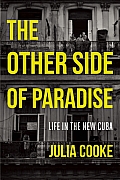 Ever since President Obama's December announcement that the United States is resuming full diplomatic ties with Cuba, the Powell's buyers' office has been suffering from an epidemic of reverse island fever. It turns out that almost all of us harbor a secret desire to visit Cuba. Some of us want to eat lobster, swim in a turquoise ocean, and drink mojitos, while others are motivated by politics, music, or wildlife. The origin of my interest is easy to trace. When I was 18, I spent a miserable, sunburnt week on the deck of my grandmother's Palm Beach condo, reading the New Testament for school and watching my family play on the beach. One day, maybe to rescue me from the Bible assignment or my grandmother's morbid habit of inviting neighbors to look at my burns, my parents decided to take us on a day trip to Miami. That evening we had dinner at a sidewalk restaurant in Little Havana, Miami's Cuban neighborhood. It was a little La Cage aux Folles meets Buena Vista Social Club: couples in neon thongs rollerbladed past our table, while old men drank espresso and Afro-Caribbean music blared out of open car windows and cafes. I loved the salty-sweet plantains and rich black beans and the absurdly naked pedestrians. I loved the thumping music and the sea breeze and the old men in their dapper hats. Cuba, I decided, my mouth full of fried fish, must be an excellent place to visit. I still feel that way, though I know enough now about Cuban politics and daily life to realize that Cuba isn't all charmingly rusted Studebakers and white sand beaches. In fact, the frozen-in-time quality of Cuba's old cars and crumbling Art Deco mansions, which I find so romantic, is simply the result of economic stagnation and limited resources. According to Julia Cooke's fascinating The Other Side of Paradise: Life in the New Cuba, the majority of Cuba's post-revolution youth feel trapped on a desert island with a 99% literacy rate but little employment opportunity, a much-lauded organic agriculture movement but persistent food shortages, and pervasive racial and gender inequities that favor the advancement of white male Cubans. The Other Side of Paradise is a sobering read, but it is also deeply sympathetic and remarkably apolitical. Cooke offers detailed portraits of everyday lives, as well as of her own experiences living in Havana, and allows the reader to develop his own opinions of the Castro brothers' regimes and American–Cuban relations. 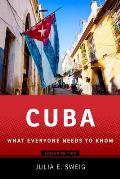 What Cooke's account lacks in historical and political detail can be found in Julia Sweig's comprehensive Cuba: What Everyone Needs to Know. A concise reference on Cuban political and cultural history from colonial Spanish rule through President Obama's initial easing of remittance and travel restrictions in 2009, Cuba: What Everyone Needs to Know provides the best essential background reading on the nation available in English. As a bonus, the question-and-answer format of the book makes it easy to skip to the subjects you're most interested in. What Cooke's account lacks in historical and political detail can be found in Julia Sweig's comprehensive Cuba: What Everyone Needs to Know. A concise reference on Cuban political and cultural history from colonial Spanish rule through President Obama's initial easing of remittance and travel restrictions in 2009, Cuba: What Everyone Needs to Know provides the best essential background reading on the nation available in English. As a bonus, the question-and-answer format of the book makes it easy to skip to the subjects you're most interested in.
Readers seeking a greater understanding of both the current street impact of American foreign policy in Cuba and Cuban history should read Marc Frank's outstanding Cuban Revelations: Behind the Scenes in Havana, which combines Julia Cooke's expert sociological reportage with a profound understanding of Cuban social and economic policies. Frank is a veteran foreign correspondent living in Cuba, and his writing manages to be information dense without becoming academic or dull. A layperson with a serious interest in 21st-century Cuba — or future plans to visit — will find Frank's work enlightening, accessible, and balanced. A reader's journey to Cuba wouldn't be complete without at least one book about or by Che Guevara, the influential Argentinian revolutionary and a major architect of the Cuban Revolution. There are many decent books about Che Guevara, but the two I recommend for people new to Cuban and Latin American history are Che Guevara: A Revolutionary Life by Jon Lee Anderson and Guevara's own The Motorcycle Diaries: Notes on a Latin American Journey. Anderson's biography is massive and critics justly note a pro-Che bias, but Che Guevara: A Revolutionary Life is meticulously researched and easily the most comprehensive life study of Guevara available. In particular, Anderson illuminates the relationship between Che Guevara and Fidel Castro, which was critical in setting Cuba on the road to a Communist takeover. The Motorcycle Diaries isn't about Guevara's time in Cuba (for his thoughts on Cuba, read Episodes of the Cuban Revolutionary War, 1956-58), but it's a charming introduction to Guevara as a very young man and provides critical context for understanding how he developed the ideological stance that led to his involvement in Cuba and other socialist revolutions. Given the American predilection for wearing Che Guevara–emblazoned clothing, it seems wise to first arm ourselves with a clearer understanding of who he was and what he continues to represent in Cuba and abroad, and both Anderson's and Guevara's works are excellent places to begin that process. 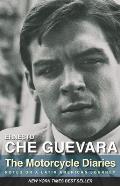 If a bit of fun is what you're after, try Alina García-Lapuerta's biography La Belle Créole: The Cuban Countess Who Captivated Havana, Madrid, and Paris or Ramiro Fernandez's beautiful photography collection, Cuba Then: Rare and Classic Images from the Ramiro Fernandez Collection. La Belle Créole traces the life of Mercedes Santa Cruz y Montalvo, a beautiful socialite and talented soprano who devoted her life to music and philanthropy. While her artistic friendships and French marriage are legendary, she's even more renowned as the first female Cuban writer, and García-Lapuerta mines the countess's trove of memoirs, letters, and travelogues to create a stunning portrait of a bright and indomitable woman in Napoleonic Paris. Ramiro Fernandez's photos recollect the Cuba of Hemingway and the Sugar Barons, images that are particularly stunning when paired with one of the analyses of 21st-century Cuba described above. If a bit of fun is what you're after, try Alina García-Lapuerta's biography La Belle Créole: The Cuban Countess Who Captivated Havana, Madrid, and Paris or Ramiro Fernandez's beautiful photography collection, Cuba Then: Rare and Classic Images from the Ramiro Fernandez Collection. La Belle Créole traces the life of Mercedes Santa Cruz y Montalvo, a beautiful socialite and talented soprano who devoted her life to music and philanthropy. While her artistic friendships and French marriage are legendary, she's even more renowned as the first female Cuban writer, and García-Lapuerta mines the countess's trove of memoirs, letters, and travelogues to create a stunning portrait of a bright and indomitable woman in Napoleonic Paris. Ramiro Fernandez's photos recollect the Cuba of Hemingway and the Sugar Barons, images that are particularly stunning when paired with one of the analyses of 21st-century Cuba described above.
Reading these books won't replace the thrill of eating lobster on the beach or dancing the salsa until daybreak — they may even put a damper on those fantasies — but they will transport you to a beautiful, complicated island and introduce you to
|
Beyond the Headlines
by Rhianna Walton, November 8, 2014 10:00 AM
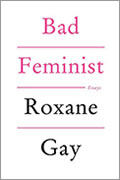 First, a confession: I hate-watched the first two seasons of Lena Dunham's Girls. Every situation and character on the show made me cringe. Most scenes involve unpleasant people having unpleasant sex, or scheming to have (unpleasant) sex, or dealing with the discomfort of trying to avoid or distance themselves from earlier, unpleasant sex. Sure there are scenes about how hard it is to be a fragile young writer/aspiring curator/alluring nanny, but everyone's so vile that their antics elicit more schadenfreude than sympathy. And yet Girls has a brash truth underpinning all its awfulness. As the White House report on rape and sexual assault made clear this year, most young women find themselves in sexual situations that feel out of their control; many blame themselves for these situations (or are blamed by others); a lot of girls and women still believe sexuality forms their primary identity and negotiating tool; and too many of us aim to please regardless of whether or not doing so means shuttering our inclination to say no, or yes, or anything we want without fear of censure and dismissal. One of the reasons Girls is unpleasant is because being a girl can be unpleasant, and the show's cleverness lies in how its characters unconsciously internalize and act upon the inferiority, fear, and sexual myths that pervade American womanhood. It's hard to fight the misogyny within American culture because a lot of people — like Dunham's girls — either don't see it or think we've moved past it. Another, more surprising, obstacle to gender equality is the in-fighting among feminists. The recent Lena Dunham sex abuse scandal is a prime example. Some minority feminists argue that Dunham is too white and privileged to be held accountable for her failures, and many are angered by the unconditional support she's received from elite white feminists. White feminists have countered that the right-wing media's public shaming of Dunham's narrative is a gross attempt to silence a subversive woman and that their support has nothing to do with race or class. The result is a deepening of the racial and class divisions within feminism that distract from the shared goal of making the world an equitable place. This fighting among feminists is troubling because it implies that there's a "right" way to be a feminist, despite the diversity of human experience. Culture critic and novelist Roxane Gay confronts this issue head-on in her fantastic new collection of essays, Bad Feminist. In Bad Feminist, Gay examines the necessary contradictions of Millennial Feminism, using social, film, and literary criticism, as well as personal anecdotes, to illustrate how a woman can read Sweet Valley High, dance to Chris Brown, and still advocate for gender equality. Gay's essays are perfect for people wary of the feminist label because she's very funny and honest about her failings, but argues passionately, convincingly that we can "disavow the failures of feminism" without disavowing the justice of its goals. 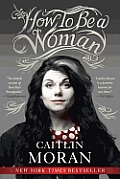 Another great introduction to feminist ideas is Caitlin Moran's hilarious, deliciously off-color and smart memoir/treatise, How to Be a Woman. Moran argues that feminism is too exciting and important to be relegated to academia, the only place she sees people engaging seriously (and in her opinion, inaccurately) with problems of equality and privilege. She's also concerned with what she calls the "'Broken Windows' philosophy, transferred to female inequality," in which ignoring one small problem — cultural disgust with female body hair, for example — leads gradually to a full-scale invasion and degradation of the female form and mind. Like Bad Feminist, How to Be a Woman's accessibility and candor makes it a perfect choice for readers turned off by stodgier or more militant forms of feminist ideology. Another great introduction to feminist ideas is Caitlin Moran's hilarious, deliciously off-color and smart memoir/treatise, How to Be a Woman. Moran argues that feminism is too exciting and important to be relegated to academia, the only place she sees people engaging seriously (and in her opinion, inaccurately) with problems of equality and privilege. She's also concerned with what she calls the "'Broken Windows' philosophy, transferred to female inequality," in which ignoring one small problem — cultural disgust with female body hair, for example — leads gradually to a full-scale invasion and degradation of the female form and mind. Like Bad Feminist, How to Be a Woman's accessibility and candor makes it a perfect choice for readers turned off by stodgier or more militant forms of feminist ideology.
Rebecca Solnit's brilliant essay collection, Men Explain Things to Me, takes a cooler and more literary approach to issues like sexual violence, power dynamics, and, in the scathing title essay, the silencing of women. Solnit's writing is flawless and her incisive, journalistic style highlights the fact that feminist issues are really global, humanitarian problems. Another, more accessible author who excels at global feminism is the New York Times columnist Nicholas Kristof. His two books, coauthored with Sheryl WuDunn, Half the Sky: Turning Oppression into Opportunity for Women Worldwide and A Path Appears: Transforming Lives, Creating Opportunity, provide vital accounts of both violence against women and the efforts being made to help them. Kristof and WuDunn's books are easy to read and full of anecdotes, making them a great choice for teenage readers. 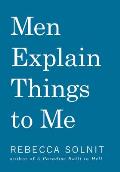 One of Roxane Gay's central concerns about American feminism, echoed in the textbooky but thorough Feminism Unfinished by Dorothy Sue Cobble, Linda Gordon, and Astrid Henry is that the public perception of feminism is as a movement for white career women (cue Melanie Griffith in Working Girl). In fact, feminism is an everchanging social movement that reflects the shifting demographics and needs of American women. The authors who best articulate minority voices within feminism are the late Audre Lord, whose poetry and essays (read Sister Outsider) manage to express both anger and inclusiveness, and bell hooks, whose seminal Feminism Is for Everybody may be the best general introduction ever written. What I especially admire about hooks is the way she includes men in her work, as subjects and as readers. While I believe men can and should read all of the books on this list, hooks is singular in pushing them into the conversation. One of Roxane Gay's central concerns about American feminism, echoed in the textbooky but thorough Feminism Unfinished by Dorothy Sue Cobble, Linda Gordon, and Astrid Henry is that the public perception of feminism is as a movement for white career women (cue Melanie Griffith in Working Girl). In fact, feminism is an everchanging social movement that reflects the shifting demographics and needs of American women. The authors who best articulate minority voices within feminism are the late Audre Lord, whose poetry and essays (read Sister Outsider) manage to express both anger and inclusiveness, and bell hooks, whose seminal Feminism Is for Everybody may be the best general introduction ever written. What I especially admire about hooks is the way she includes men in her work, as subjects and as readers. While I believe men can and should read all of the books on this list, hooks is singular in pushing them into the conversation.
Too often that conversation focuses on women's bodies or Lena Dunham–type scandals that just serve as foils for the misogyny operative in American culture, a misogyny in which all of us are complicit. I won't be watching any more seasons of Girls. But I'm glad that there are people like Dunham and the writers above who are willing to say that feminism isn't perfect, women aren't perfect, but a stable world requires that we
|
Beyond the Headlines
by Rhianna Walton, September 10, 2014 3:48 PM
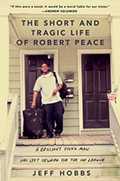 Like many Americans I walk an uneasy line between being appalled by the living conditions of the inner-city and being afraid of them. The educational and socio-economic disadvantages common in inner-city neighborhoods, along with the high rates of drug- and gang-related violent crime, are already hard problems to grasp and tackle. The fact that these problems are primarily faced by minority communities makes it even harder to engage in productive dialogue, particularly one free of the PC sensitivity that tiptoes across issues when a raucous stomp might be more effective. We've seen some stomping this summer. Not all of it has been easy to understand: the riots and looting following the shooting death of Michael Brown in Ferguson, Missouri, made manifest the community's anger, but it also obscured the crime and troubled the distinction between innocent community and guilty police force. The majority of protestors, however, have been vocal and peaceful, forcing Ferguson and communities across the country to think hard about police militarization, diversity in law enforcement, and the fact that in many American towns and cities, young black people have to be afraid of the police and civilians with guns. In a New York Times op-ed article earlier this week, "What Makes People Poor?," Thomas B. Edsall discusses the liberal tendency to shy away from negative depictions of inner-city minorities and the conservative habit of attributing poverty and violence to character flaws instead of societal conditions. Edsall argues that both attitudes have obstructed honest debate and lauds the work of sociologist William Julius Wilson, one of the first scholars to assert that the character flaws associated with the inner-city — lack of initiative, broken families, welfare dependence, crime, and violence — are the result of staggering class and racial inequality. His work, Edsall suggests, has opened the door for a host of talented young journalists and academics to write about the realities of inner-city life without the blunting influences of political correctness or prejudice. 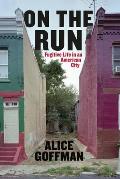 One such writer, the novelist Jeff Hobbs, has produced one of 2014's finest books, The Short and Tragic Life of Robert Peace. Here Hobbs gives us the life story of his college roommate, a brilliant scientist from the Newark, New Jersey, ghetto who excelled at Yale only to die in a drug-related murder after graduation. This could be a Hallmark movie tear-jerker of a book, but Hobbs is far too talented and self-aware for that. The Short and Tragic Life makes no bones about the violence and deprivation that marked Robert Peace's childhood, but it also doesn't absolve him of the anger, pride, conceit, or cultural conditioning that led him to engage in criminal activities despite all of the sacrifices that family, friends, and even strangers made so that he could succeed. Hobbs is particularly good at illuminating the tensions between the white and privileged (including himself) and the poor minority students at Yale, who reach what they've been told is the top only to discover that real success requires the additional capital and family support needed to go to law and medical school or into elite but nonlucrative careers like teaching and research — money they don't have, support they may not have, dream careers that seem a lot less pragmatic than the service and other professions of their high school friends and family members. The Short and Tragic Life of Robert Peace is a harrowing elegy, but it is also an eye-opening examination of inner-city boyhood and the troubling, much too simplistic way we equate success with escape. One such writer, the novelist Jeff Hobbs, has produced one of 2014's finest books, The Short and Tragic Life of Robert Peace. Here Hobbs gives us the life story of his college roommate, a brilliant scientist from the Newark, New Jersey, ghetto who excelled at Yale only to die in a drug-related murder after graduation. This could be a Hallmark movie tear-jerker of a book, but Hobbs is far too talented and self-aware for that. The Short and Tragic Life makes no bones about the violence and deprivation that marked Robert Peace's childhood, but it also doesn't absolve him of the anger, pride, conceit, or cultural conditioning that led him to engage in criminal activities despite all of the sacrifices that family, friends, and even strangers made so that he could succeed. Hobbs is particularly good at illuminating the tensions between the white and privileged (including himself) and the poor minority students at Yale, who reach what they've been told is the top only to discover that real success requires the additional capital and family support needed to go to law and medical school or into elite but nonlucrative careers like teaching and research — money they don't have, support they may not have, dream careers that seem a lot less pragmatic than the service and other professions of their high school friends and family members. The Short and Tragic Life of Robert Peace is a harrowing elegy, but it is also an eye-opening examination of inner-city boyhood and the troubling, much too simplistic way we equate success with escape.
Another phenomenal young writer is sociology professor Alice Goffman, whose On the Run: Fugitive Life in an American City documents the years she spent embedded in one of Philadelphia's worst neighborhoods, befriending and observing a group of young black men. Goffman's argument is that the War on Drugs, while ineffective at curbing the illegal drug trade, has allowed a de facto surveillance state to develop in inner-city neighborhoods. In these communities, Goffman suggests, everyone is a suspect and most black youth are considered criminal by association — through older siblings in gangs, through friends or parents with criminal records, or just for living on a specific street. The constant surveillance and high arrest rates (she tells the story of an 11-year-old arrested for being a passenger in a stolen car) erode community ties and fuel distrust of law enforcement. Her argument is compelling, but what makes Goffman's book exemplary are her personal anecdotes and the life stories of her friends/subjects. On the Run forces the reader to see statistics as human beings, and the experience is both disconcerting and illuminating. 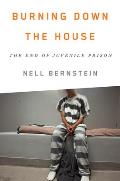 As both The Short and Tragic Life of Robert Peace and On the Run make clear, incarceration is a common experience among inner-city residents. Many of Robert Peace's childhood friends and Goffman's subjects had family members in jail, or spent time there themselves. Nell Bernstein's latest book, Burning Down the House, looks specifically at juvenile incarceration, arguing that the juvenile prison industry makes a profit while abusing children — often poor minorities — and drastically lowers their chances of receiving an education and landing a decent job. Like Goffman's subjects, a lot of these kids are locked up for minor infractions like parole violation or truancy; as in On the Run, a perverse domino effect ensues in which one violation leads to increased surveillance, which leads to evading law enforcement, which leads to warrants, convictions, jail time, and a lifetime overshadowed by a felony record. It's clear that Bernstein is furious, but after reading her interviews with prisoners and meticulous deconstruction of the prison industry, it's impossible not to share her frustration. Like Hobbs and Goffman, Bernstein doesn't hide the fact that her subjects break the law or can be scary or unpleasant. Her point is that the American justice system and prison industry take kids who are already suffering from societal ills and ensure that when they get out, nothing will change. As both The Short and Tragic Life of Robert Peace and On the Run make clear, incarceration is a common experience among inner-city residents. Many of Robert Peace's childhood friends and Goffman's subjects had family members in jail, or spent time there themselves. Nell Bernstein's latest book, Burning Down the House, looks specifically at juvenile incarceration, arguing that the juvenile prison industry makes a profit while abusing children — often poor minorities — and drastically lowers their chances of receiving an education and landing a decent job. Like Goffman's subjects, a lot of these kids are locked up for minor infractions like parole violation or truancy; as in On the Run, a perverse domino effect ensues in which one violation leads to increased surveillance, which leads to evading law enforcement, which leads to warrants, convictions, jail time, and a lifetime overshadowed by a felony record. It's clear that Bernstein is furious, but after reading her interviews with prisoners and meticulous deconstruction of the prison industry, it's impossible not to share her frustration. Like Hobbs and Goffman, Bernstein doesn't hide the fact that her subjects break the law or can be scary or unpleasant. Her point is that the American justice system and prison industry take kids who are already suffering from societal ills and ensure that when they get out, nothing will change.
Two other books of note are Laurence Ralph's forthcoming Renegade Dreams: Living through Injury in Gangland Chicago and Gary Haugen's and Victor Boutros's
|
Beyond the Headlines
by Rhianna Walton, July 10, 2014 11:35 AM
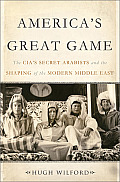 Reading the newspaper these days feels a little like time traveling. After eight years of war in Iraq and (let's be honest) at least three years of societal amnesia, it's startling to wake up to headlines about sectarian violence and the president's requests for resources to fight ISIS, the radical Islamic organization conquering vast swathes of western Iraq, with devastating humanitarian consequences. Haven't we been here before? Didn't we win? And didn't we leave? The reports remind me of a college class I taught on war literature a few years ago. One of the things that intrigued me was my students' disinterest in learning about Iraq. For them the war was their growing up, just part of the din of the adult world that has no meaning in childhood, like mortgage payments or tax reform. Sure, they had political opinions about the country — what American doesn't? — but no real knowledge of Iraq or the second Gulf War. And, in trying to refute their apathy, I realized to my embarrassment that I didn't either. Many excellent books have been written on the wars in Iraq and Afghanistan in the last decade, the most popular falling into what I call the "hero genre" — books like Chris Kyle's American Sniper and Marcus Luttrell's Lone Survivor, which glorify the role of the elite American soldier in combat. Somewhat less popular but immensely important are recent books on the history of the Shia-Sunni conflict and the plight of veterans returned from the wars in Iraq and Afghanistan. When I first realized how little I knew about Iraq, these were the books I turned to; and now that time seems to be reversing its course, it feels right to revisit them. 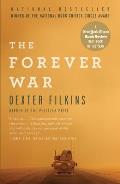 For a more thorough understanding of America's historic role and interest in Middle Eastern policy, I recommend reading Hugh Wilford's well-researched and entertaining America's Great Game: The CIA's Secret Arabists and the Shaping of the Modern Middle East. Wilford explores the lives and activities of three CIA officers in the Middle East in the 1940s and '50s (the "Mad Men" of the Middle East), describing how — despite the best intentions — they initiated political turmoil that destabilized the region and permanently affected relations between the U.S. and Middle Eastern leaders. Another useful contextual book is Lesley Hazleton's After the Prophet: The Epic Story of the Shia-Sunni Split in Islam. Written in a colorful narrative style, After the Prophet describes the seventh-century conflict over who should lead Islam after the Prophet Muhammad's death. Hazleton does an expert job of linking ancient events to the present day, providing the reader with a profound understanding of the Shia-Sunni violence central to the current Iraqi conflict. For a more thorough understanding of America's historic role and interest in Middle Eastern policy, I recommend reading Hugh Wilford's well-researched and entertaining America's Great Game: The CIA's Secret Arabists and the Shaping of the Modern Middle East. Wilford explores the lives and activities of three CIA officers in the Middle East in the 1940s and '50s (the "Mad Men" of the Middle East), describing how — despite the best intentions — they initiated political turmoil that destabilized the region and permanently affected relations between the U.S. and Middle Eastern leaders. Another useful contextual book is Lesley Hazleton's After the Prophet: The Epic Story of the Shia-Sunni Split in Islam. Written in a colorful narrative style, After the Prophet describes the seventh-century conflict over who should lead Islam after the Prophet Muhammad's death. Hazleton does an expert job of linking ancient events to the present day, providing the reader with a profound understanding of the Shia-Sunni violence central to the current Iraqi conflict.
If what interests you are the experiences of American combat troops and war correspondents, Dexter Filkins's magisterial The Forever War surveys the wars in both Iraq and Afghanistan in a series of vignettes that cover a broad range of perspectives and gracefully abstain from political judgment. If I had to recommend just one book on the Iraq War, this beautifully written, brave, and thoughtful work would be it. Another exceptional book on American troops is David Finkel's Thank You for Your Service, a devastating portrait of the difficulties many men and women experience when they return from war. Like Filkins, Finkel's work is markedly apolitical, governed by its interest and empathy in its subjects rather than an ideological agenda. 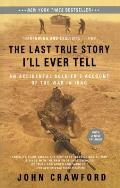 It's difficult to find analysis of the war from an Iraqi or Muslim perspective, but two recent books help provide Western readers with a glimpse of what life is like inside Iraq and other war-torn Middle Eastern countries. The first, Kirk W. Johnson's To Be a Friend Is Fatal: The Fight to Save the Iraqis America Left Behind, details Johnson's experiences as a very young reconstruction coordinator in Iraq. Johnson's idealism is soon replaced by fear and depression as he sees his Iraqi friends kidnapped and murdered for working with American agencies; once Johnson returns to the U.S., frantic emails from friends fearing for their lives inspire him to start the List Project, aimed at securing refugee status for Iraqis formerly employed by the U.S. coalition. Many of the stories in this book are gruesome, but it documents an important and forgotten consequence of the U.S. invasion. For an international relations angle, Professor Mohammed Ayoob's Will the Middle East Implode provides a clear and succinct introduction to the intersection of faith and politics in the Middle East, and lends insight into the Shia-Sunni struggle at the heart of the ISIS takeover of Iraq. It's difficult to find analysis of the war from an Iraqi or Muslim perspective, but two recent books help provide Western readers with a glimpse of what life is like inside Iraq and other war-torn Middle Eastern countries. The first, Kirk W. Johnson's To Be a Friend Is Fatal: The Fight to Save the Iraqis America Left Behind, details Johnson's experiences as a very young reconstruction coordinator in Iraq. Johnson's idealism is soon replaced by fear and depression as he sees his Iraqi friends kidnapped and murdered for working with American agencies; once Johnson returns to the U.S., frantic emails from friends fearing for their lives inspire him to start the List Project, aimed at securing refugee status for Iraqis formerly employed by the U.S. coalition. Many of the stories in this book are gruesome, but it documents an important and forgotten consequence of the U.S. invasion. For an international relations angle, Professor Mohammed Ayoob's Will the Middle East Implode provides a clear and succinct introduction to the intersection of faith and politics in the Middle East, and lends insight into the Shia-Sunni struggle at the heart of the ISIS takeover of Iraq.
Finally, because it's summer and sometimes you just want a good war story, reach for John Crawford's now-overlooked memoir The Last True Story I'll Ever Tell, about his 2002 deployment to Iraq with the National Guard. Crawford writes in spare short stories about the impact of war on his sense of self and marriage. The last chapter is a masterpiece, showcasing the way fiction can reveal — more powerfully than any memoir or reportage — the truths about ourselves that we most want to
|
Beyond the Headlines
by Rhianna Walton, May 27, 2014 10:00 AM
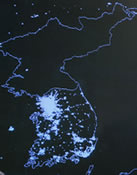 | Satellite image of North and
South Korea at night |
Given North Korea's isolation from the rest of the world, it's surprising how many scholarly books have been published on the country's economy, politics, history, and culture. The growing number of refugee memoirs depicting North Korea's cradle-to-grave propaganda machine and its oppression of civilians is perhaps less surprising but more tantalizing for presenting an insider's account. Bestsellers like Escape from Camp 14 satisfy what Christopher Hitchens called our "[preoccupation with the] imposing and exotic forms of totalitarianism" (Slate.com 2/1/10). More fascinating, however, than the salacious details divvied out in North Korean histories and memoirs, is that the genre is as contradictory and elusive as the country itself: while everyone agrees that a certain level of brutality and deprivation exists in North Korea, there's virtually no consensus regarding the strength of the Kim dynasty, the threat North Korea poses to the world, or even what the daily life of the average civilian is like. The best a curious reader can do is read a bit (or a lot) of everything, seeking commonalities and making meaning of the mystery that is the Hermit Kingdom. Here's a list of brilliant titles to get you started.
|
Beyond the Headlines
by Rhianna Walton, April 29, 2014 11:34 AM
If you're a news junkie like me, there are times when even the cornucopia of journalism available isn't enough to sate your curiosity or answer all of your questions. It's just too hard to fit the history of the Cold War or the shifting boundaries of Eastern Europe into a six-minute news segment on NPR, or even into the more lavish spread of a newspaper or magazine article. The escalating tensions between Russia, Ukraine, and the West are haunted by the complex specters of the Tsarist Empire and Soviet Russia, with their attendant histories of annexation, persecution, and battling ideologies both within their borders and with the West. If you're feeling lost in the news, or simply want to learn more, try one of the excellent books below.
|